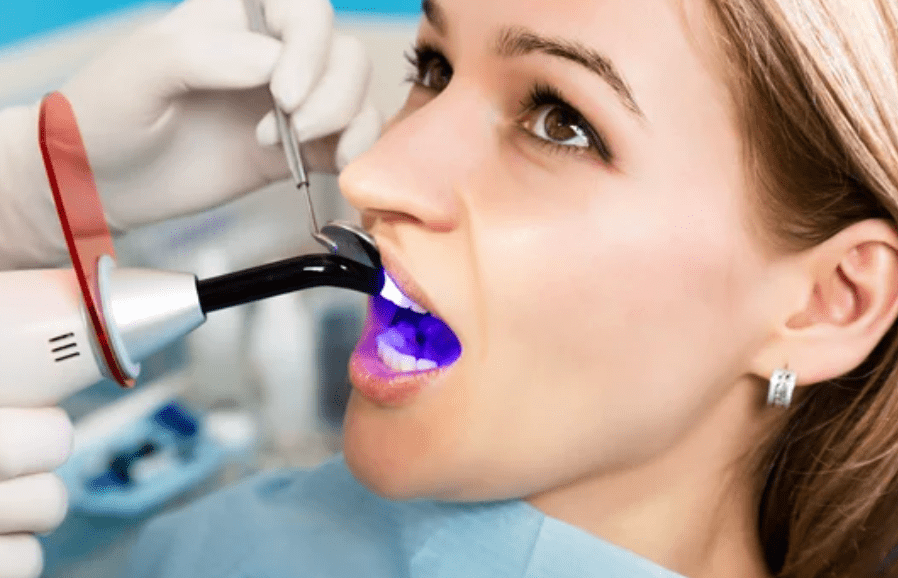Your smile is your signature. A beautiful smile often starts with healthy teeth. If you have chipped, discolored, or slightly misaligned teeth, you may hesitate to smile. But, tooth bonding might be the solution you’ve been looking for. Not only can it benefit your smile, but it can also improve your oral health.

What is Tooth Bonding?
Tooth bonding is a cosmetic dentistry procedure. Your dentist will apply a tooth-colored resin to the surface of your teeth. They will skillfully shape this resin and contour it to your teeth. Then, they will polish the resin to enhance the appearance of your teeth.
The Health Benefits of Tooth Bonding
Tooth bonding helps strengthen your teeth. It can repair minor chips and fractures, restoring your tooth’s structural integrity. This helps prevent further damage and maintains your overall oral health.
Additionally, bonding material seals small cracks and gaps in your teeth. This makes it harder for harmful bacteria to penetrate. As a result, your risk of tooth decay and cavities is reduced, promoting better oral health.
Finally, your dentist may use bonding to cover exposed tooth roots, which are often the cause of tooth sensitivity. By protecting these areas, you can enjoy hot and cold foods without discomfort.
Caring for Bonded Teeth
Proper oral hygiene is essential for keeping your bonded teeth in top shape. Luckily, you can clean bonded teeth similarly to your natural teeth. Use a soft-bristle toothbrush and non-abrasive toothpaste to prevent scratching the bonding material.
While the bonding resin is resistant to staining, it’s not entirely stain-proof. Be mindful of consuming dark-colored beverages like coffee, tea, and red wine in excess. If you do indulge, rinse your mouth or brush your teeth shortly afterward to minimize staining.
Bonded teeth are durable but not indestructible. Avoid biting on hard objects like ice, pens, or fingernails. This is because it can chip or break the bonding material. If you have a habit of clenching or grinding your teeth, consider wearing a nightguard to protect your teeth while you sleep.
You need to maintain your scheduled dental check-ups. Your dentist will examine your bonded teeth to ensure they are in good condition. They can quickly address any issues. This will prevent more extensive problems down the road.
The Bonding Process
The journey to a better smile begins with a consultation with your dentist. They will assess your oral health and discuss your goals for tooth bonding. Together, you’ll create a plan to achieve the smile you desire.
In most cases, there is minimal tooth preparation required for bonding. Your dentist will etch the tooth’s surface slightly to ensure the bonding material adheres securely.
They will carefully match the shade of the resin to your natural teeth. Then, your dentist will sculpt and shape the resin to achieve the smile you desire. Finally, they will use a special curing light to harden the resin.
Once set, your dentist will refine the shape and polish the bonded tooth to a natural shine.
